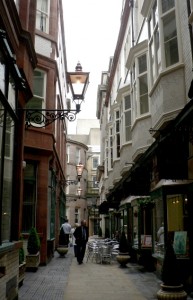Web Sites for Local History
Over the past few weeks I’ve come across a handful of very interesting looking sites for those of you with a local history interest. The best thing about them is that they’re after your input, so pop along and see what you can contribute!
Building History is a specialised wiki site, much like the (in)famous Wikipedia and the Liverpool Wiki. It encourages users to submit information about any road or building to its database, even the one you live in! Almost 200 roads and nearly 300 buildings have been added, and the site’s only been online since October 2009.
All you need is an email address, and you can get going. The Warwick page is the most complete, so use that as a template. Liverpool is there, waiting for someone to add something, though note that it’s placed in Lancashire!
For those privacy-concerned individuals (like me), it’s good to know they only allow publicly-available data to be added (census data, for example).
Liverpool Signs, Mosaics, Words and Graffiti is a set of photos on Flickr which collects together a huge number of images of… well, signs, mosaics, words and graffiti.
The most obviously interesting ones to readers of this blog are the ancient signs painted on the sides of warehouses and shops, or the tiled signs such as this Liverpool Co-operative sign in Bootle. But the collection also includes a huge number of other examples, from the formal to the most informal.
Of especial interest to me, as a ‘hidden landscape’ geek, is the boundary marker from Smithdown Road. I’m not sure whether this is a township boundary post or one for the London and North Western Railway (that’s the stamp on the marker), but Smithdown Road crosses the old boundary between the Toxteth and Wavertree townships.
Two other Flickr Groups you might be interested in are the Old Liverpool and Secret Life of Smithdown Road groups.
Finally, we have the Open Plaques project. This, in its own words, is “a service that aims to find and provide data about all the commemorative ‘plaques’ (often blue and round) that can be found across the UK and worldwide”.
You can browse their database via peoples’ names, places, or organisation, and the site wants all the plaques photographed, tagged with their geographical location, and have their colour identified. There’s a neat little graph on the home page letting you know how they’re getting on.
The data comes from a variety of sources (including English Heritage’s blue plaques site and Freedom of Information requests) which have been cleaned up for presentation on the site.
You can help them by getting in touch, or taking a photo of one and uploading it to Flickr. If you tag the photo correctly (as explained on the site) it will appear next to the relevant entry. Brilliant! All the data is free for you to reuse, and the maps are created using OpenStreetMap. You can follow the project via Twitter: @openplaques, or on their .
There are nine plaques for the city of Liverpool.




